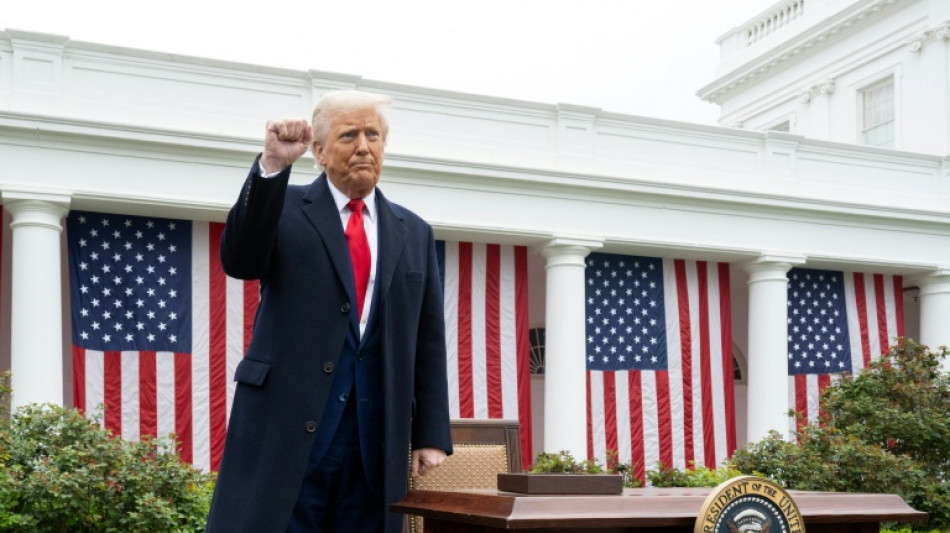
-
 Selfies, goals and cheers at South Africa's grannies World Cup
Selfies, goals and cheers at South Africa's grannies World Cup
-
Tsunoda frustrated with 15th in Red Bull qualifying debut

-
 Rain forecast adds new element to combustible Japanese GP
Rain forecast adds new element to combustible Japanese GP
-
Ukraine mourns 18 killed in Russian missile strike

-
 Germany's Mueller to leave Bayern Munich after 25 years
Germany's Mueller to leave Bayern Munich after 25 years
-
India's Modi clinches defence, energy deals in Sri Lanka
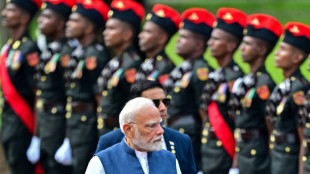
-
 Verstappen snatches 'special' pole for Japan GP with lap record
Verstappen snatches 'special' pole for Japan GP with lap record
-
Cambodia hails opening of naval base renovated by China
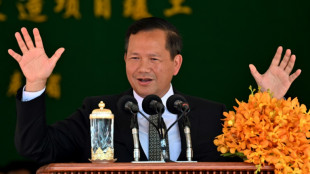
-
 Verstappen snatches 'insane' pole for Japan GP in track record
Verstappen snatches 'insane' pole for Japan GP in track record
-
Thousands rally for South Korea's impeached ex-president Yoon
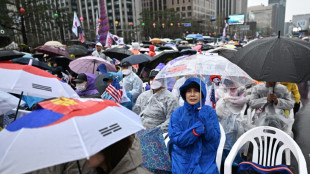
-
 New Zealand hammer Pakistan by 43 runs to sweep ODI series 3-0
New Zealand hammer Pakistan by 43 runs to sweep ODI series 3-0
-
Myanmar quake death toll passes 3,300: state media

-
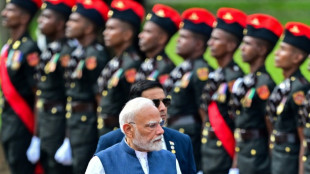 India's Modi in Sri Lanka for defence and energy deals
India's Modi in Sri Lanka for defence and energy deals
-
'No one to return to': Afghans fear Pakistan deportation

-
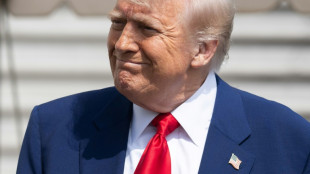 Fractious Republicans seek unity over Trump tax cuts
Fractious Republicans seek unity over Trump tax cuts
-
America's passion for tariffs rarely pays off, economists warn
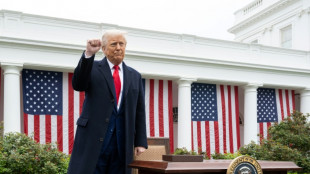
-
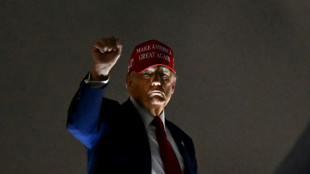 Trump's global tariff takes effect in dramatic US trade shift
Trump's global tariff takes effect in dramatic US trade shift
-
North Korea's Kim fires new sniper rifle while visiting troops
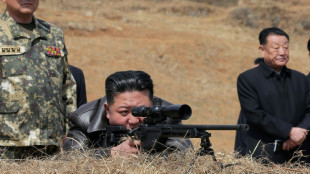
-
 Norris fastest in McLaren 1-2 as fires again disrupt Japan GP practice
Norris fastest in McLaren 1-2 as fires again disrupt Japan GP practice
-
Vital European defence startups still facing hurdles

-
 'I don't have a voice in my head': Life with no inner monologue
'I don't have a voice in my head': Life with no inner monologue
-
Pakistan chasing 265 to win shortened third New Zealand ODI

-
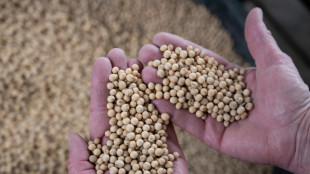 US soybeans, energy: Who is hit by China's tariff retaliation?
US soybeans, energy: Who is hit by China's tariff retaliation?
-
Green, Sengun lift Rockets over Thunder, Celtics clinch record

-
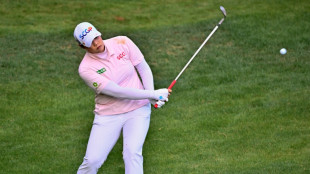 Ariya downs defending champ Korda to advance at LPGA Match Play
Ariya downs defending champ Korda to advance at LPGA Match Play
-
Ovechkin ties Gretzky's all-time record of 894 NHL goals
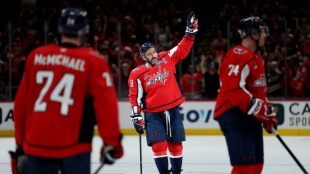
-
 Under-pressure Doohan vows to learn from Japanese GP smash
Under-pressure Doohan vows to learn from Japanese GP smash
-
Harman goes four clear at Texas Open

-
 McLaughlin-Levrone, Thomas cruise to wins at opening Grand Slam Track
McLaughlin-Levrone, Thomas cruise to wins at opening Grand Slam Track
-
Russian strike kills 18 in Ukrainian president's home city

-
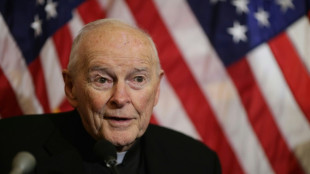 US cardinal defrocked for sex abuse dies at 94
US cardinal defrocked for sex abuse dies at 94
-
Lula admits 'still a lot to do' for Indigenous Brazilians

-
 England, Germany and Spain on mark in women's Nations League
England, Germany and Spain on mark in women's Nations League
-
Bayern's Musiala to miss Inter first leg with injury

-
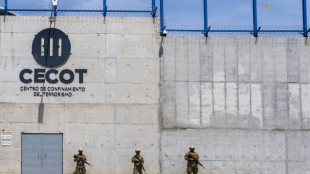 Judge orders return to US of Salvadoran man deported in error
Judge orders return to US of Salvadoran man deported in error
-
'Class' Freeman eases Northampton past Clermont and into Champions Cup quarters

-
 Amadou of Malian blind music duo dies aged 70
Amadou of Malian blind music duo dies aged 70
-
Freeman hat-trick eases Northampton into Champions Cup quarters with Clermont win

-
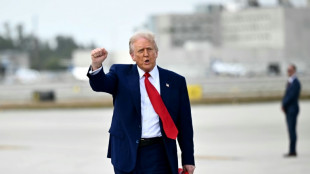 Defiant Trump dismisses stock market's tariff plunge
Defiant Trump dismisses stock market's tariff plunge
-
Musiala injury sours Bayern win at Augsburg

-
 Peruvian schoolkids living in fear of extortion gangs
Peruvian schoolkids living in fear of extortion gangs
-
Top seed Pegula rallies to oust defending champ Collins in Charleston

-
 Amadou of Malian blind music duo Amadou & Mariam dies aged 70
Amadou of Malian blind music duo Amadou & Mariam dies aged 70
-
California to defy Trump's tariffs to allay global trade fears

-
 Bayern's Musiala subbed off with injury days out from Inter clash
Bayern's Musiala subbed off with injury days out from Inter clash
-
Russian strike kills 16 in Ukraine leader's home city, children among dead

-
 NBA fines Grizzlies' Morant for imaginary gun gesture
NBA fines Grizzlies' Morant for imaginary gun gesture
-
Trump tariffs offer opportunity for China
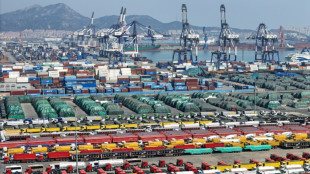
-
 UK comedian Russell Brand charged with rape
UK comedian Russell Brand charged with rape
-
Marsh, Markram help Lucknow edge Mumbai in IPL

| RBGPF | 100% | 69.02 | $ | |
| BCC | 0.85% | 95.44 | $ | |
| SCS | -0.56% | 10.68 | $ | |
| RELX | -6.81% | 48.16 | $ | |
| GSK | -6.79% | 36.53 | $ | |
| AZN | -7.98% | 68.46 | $ | |
| RYCEF | -18.79% | 8.25 | $ | |
| NGG | -5.25% | 65.93 | $ | |
| BTI | -5.17% | 39.86 | $ | |
| JRI | -7.19% | 11.96 | $ | |
| CMSC | 0.13% | 22.29 | $ | |
| BCE | 0.22% | 22.71 | $ | |
| RIO | -6.88% | 54.67 | $ | |
| VOD | -10.24% | 8.5 | $ | |
| CMSD | 0.7% | 22.83 | $ | |
| BP | -10.43% | 28.38 | $ |

America's passion for tariffs rarely pays off, economists warn
Long before Donald Trump's "Liberation Day" announcement, the United States had toyed with imposing high tariffs throughout its history, with inconclusive -- and sometimes catastrophic -- results.
"We have a 20th century president in a 21st century economy who wants to take us back to the 19th century," Dartmouth College economics professor Douglas Irwin posted on X.
The 19th century marked the golden age of tariffs in the United States, with an average rate regularly flirting with 50 percent.
The century extended a doctrine adopted since the country's founding, which advocated for the protection of the American economy as it underwent a period of industrialization.
"Careful studies of that period suggest that the tariffs did help protect domestic development of industry to some degree," said Keith Maskus, a professor at the University of Colorado.
"But the two more important factors were access to international labor, and capital... which was flowing in the United States during that period," he added.
Christopher Meissner, a professor at the University of California, Davis, told AFP that in addition to these factors, "the reason we had a thriving industrial sector in the United States was we had great access to natural resources."
These resources included coal, oil, iron ore, copper and timber -- all of which were crucial to industry.
"The industrial sector wouldn't have been much smaller if we had much lower tariffs," Meissner added.
Shortly after taking office in January, Trump said: "We were at our richest from 1870 to 1913."
The 78-year-old Republican often references former US president William McKinley, who was behind one of the country's most restrictive tariff laws, which passed in 1890.
These tariffs did not prevent imports from continuing to grow in the years that followed, although once customs duties were lowered in 1894, the amount of goods the US purchased abroad remained below previous peaks.
- Great Depression -
In 1929, Harvard professor George Roorbach wrote: "Since the end of the Civil War (1865), during which the United States has been under a protective system almost, if not quite, without interruption, our import trade has enormously expanded."
"Fluctuations that have occurred seem to be related chiefly to factors other than the ups and downs of tariff rates," he added.
A year later, the young nation tightened the screws with tariffs again, this time under Republican president Herbert Hoover.
The Smoot-Hawley Tariff Act of 1930 is best remembered "for triggering a global trade war and deepening the Great Depression," according to the Center for Strategic and International Studies.
"What generated the depression... was a lot of complicated factors, but the tariff increase is one of them," said Maskus from the University of Colorado.
The end of the Second World War marked the start of a new era in trade, defined by the ratification in 1947 by 23 countries -- including the United States -- of the GATT free trade agreement.
The agreement created the conditions for the development of international trade by imposing more moderate customs duties.
The momentum was maintained by the North American Free Trade Agreement (NAFTA) between the United States, Mexico and Canada, which took effect in 1994.
Alongside NAFTA, free trade in the United States was further expanded by the creation of the World Trade Organization in 1995, and a 2004 free trade agreement between the United States and several Central American countries.
During his first term in office, Donald Trump reopened the tariff ledger and decided on new measures against China, many of which were maintained under his successor, Joe Biden.
But despite these levies, the US trade deficit with China continued to grow until 2022, when China was hit by a brutal economic slowdown unrelated to the tariffs.
For Keith Maskus, the tariffs on Beijing did not do much to prevent the growth of imports from China.
O.Karlsson--AMWN